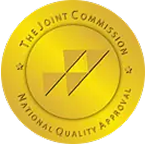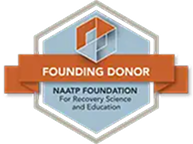AA’s Step 5: What Does It Mean to “Admit Our Wrongs” and How Does It Help?

The 12 Steps are an important part of recovery for many people, serving as a complement to the treatment process and comprehensive recovery programs. They offer guidance, structure, and a welcoming and supportive community of individuals who have “been there.”
While all the steps are equally important, not all are as easy to understand at first. Today we’re going to explore Alcoholics Anonymous’ 5th Step: what it means, how it works, and why it’s important.
What Are the Benefits of 12-Step Programs?
Before breaking down this individual step, let’s look at the 12 Steps of AA as a whole. Can they be an important tool in your recovery? Are there benefits to choosing a treatment program that includes the 12 Steps? The answer to both of these is a resounding “yes!”
You can find a path to health and recovery through the 12 Steps — especially when it’s paired with a formal treatment program. Substance Use & Misuse explains that “participation in 12-Step groups during and after formal treatment has been associated with positive outcomes among substance users.” Social Work in Public Health agrees, sharing, “AA and NA participation is associated with greater likelihood of abstinence, improved psychosocial functioning, and greater levels of self-efficacy.”
Beginning 12-Step participation while in treatment, especially at group meetings held at the treatment program or off-site with peers from your treatment program, and 12-Step attendance while enrolled in specialty treatment, are associated with better outcomes. In other words, the 12 Steps work. They increase your chances of long-term abstinence and provide a better quality of life while doing so. But note that both studies emphasize the importance of beginning participation in a 12-Step group while also in a primary treatment program.
Another great thing about the 12 Steps is that studies show AA is equally effective for everyone. Addictions: Diagnosis and Treatment reviewed various studies and found that AA works as well, and in some cases better, for women as for men and for African Americans and Native Americans as for white populations. And as long as AA groups are tailored to these specific demographics, they also work well for adolescents and members of the LGBTQIA+ community. So, no matter who you are, where you come from, or what your goals are for the future, a 12-Step program can benefit you.
A Complement to Therapy & Treatment, not a Replacement
It’s because of the 12 Steps’ proven benefits that Fellowship Hall incorporates 12-Step groups into our treatment plans. But it’s important to understand that 12 Step groups aren’t therapy or a replacement for treatment. They provide community, accountability, and mentorship that can continue well after formal treatment is completed.
A client at Fellowship Hall may begin working through the 12 Steps during treatment, but the process won’t be completed there. It’s also important to keep in mind that, like all facets of recovery, the 12 Steps and 12 Traditions won’t work for everyone. Your treatment team can help you find the best way to incorporate the 12 Steps into your recovery and your life that fit your specific treatment needs and goals.
What Is the 5th Step in AA?
To complete the 5th step of AA, we need to have: “Admitted to God, to ourselves, and to another human being the exact nature of our wrongs.” But Step 5 isn’t about judgment or self-incrimination; it’s about self-examination and personal accountability. It’s a time to recognize your own flaws and fears and take responsibility and accountability for your past actions and the consequences of your addiction. It is not about beating yourself up or wallowing in guilt.
Recovery is a process that can’t be rushed, and most people won’t get to the 5th Step while still in treatment. Your treatment team, as well as your sponsor and peers in your 12-Step group, can help you know when you’re ready to begin this process.
Step 5 involves identifying your fears and understanding why they exist in the first place. You’ll need to explore resentments and the harm you’ve caused others. Only after taking this inventory can you explore the personal traits and patterns of behavior that led to your substance use and addiction. From here, you can share with others and continue working through the Steps, having paved the way to create better connections, address any shortcomings, and make amends.
Step 5 can be scary, but the practical tools and insights you gain during treatment will help you as you continue to do this deep work. And remember: You’ve already completed the first four Steps! You’ve already sought help, community, and support. You are strong enough to take this Step and to further your healing by building trust and growing through confession.
Building Honesty in Recovery: How the 5th Step Works
The 5th Step asks for a lot of honesty towards both yourself and others. After completing Step 4, where you conduct a “searching and fearless moral inventory,” you have to have the self-awareness to honestly assess this inventory of your past and present, not just with yourself, but with others. You have to trust that you will have the strength to handle this candidness and any revelations it may bring. And the longer you’ve been struggling with addiction and mental health issues, the harder this trust can be to find. But trust is vital to your mental health, your social health, and your overall wellbeing.
The 5th Step doesn’t stop at self-reflection. It is a turning point that marks a shift in recovery from an internal process to an external one – from inner reflection to spoken confession. You have to become accountable to “another human being” with your wrongs and your self-realizations.
The Stanford Medicine News Center shares the result of a study on the effectiveness of the 12 Steps and AA. They explain that, as a whole, “AA works because it’s based on social interaction.” It breaks down the isolation and denial of addiction. And Step 5 is a key tool in ending isolation, fostering honesty and communication with yourself and others, and building interpersonal trust.
When Talking About It Feels Like Too Much
What if talking about your actions with others seem like too much to ask of you right now? That’s okay! You sought treatment because you recognized that you needed help. Even after completing a program, you still need guidance and support on your recovery journey. You’re not meant to do this alone.
When you choose a treatment program like Fellowship Hall, you have immediate and around-the-clock access to trusted treatment professionals. You can lean on our therapists and staff for support, strength, guidance, and connection. You also gain knowledge about the disease of addiction, how it impacts your brain and your body, and you uncover insights into the underlying causes of your substance use. This can make all the difference as you continue working through the 12 Steps after treatment.
You’ll also have ongoing support in the form of program alumni, your local 12-Step group, and your sponsor. As you begin to share with other peers in recovery or your support group, you’ll be reminded they have had many of the same experiences and feelings. As you’re met with acceptance, not judgment, this will help you find it easier to trust yourself and others.
An additional benefit of admitting your shortcomings is that you can use them to determine where you hope to grow and rebuild in the future. Step 5 doesn’t have to be a big, scary, singular “step.” It’s part of a much bigger process that includes professional treatment, peer support, and more formal support groups where you can build accountability. And they can all help you know when you’re ready to leap, and when something might not be in your emotional repertoire just yet.
The 5th Step and Confession
In addition to building trust, the 5th Step helps with letting go in recovery. Traditionally, part of this step involves admitting what you’re discovering about yourself and your experiences to God. But you don’t need to be religious to take part in the 5th Step – after all, this step is ultimately a moment where you become accountable to someone beyond yourself. That can be a higher power if you choose, or it can simply be your peers and sponsor in the 12-step community.
Why do so many treatment programs espouse that “confession is good for the soul”? Because it helps us accept reality. In recognizing what we’ve done and verbalizing them to others, we can put our thoughts and past actions into words, and then into perspective. Sharing things out loud with your peers starts to break down the personal guilt and shame you may feel and lets you develop the accountability mentioned above. It offers freedom from the past, allowing you to let go and move on – to let yourself start to forgive.
Moving Forward in Recovery
A reputable treatment program will prioritize flexibility and freedom to find the modalities and methods that work best for you. They can help you create a personalized plan that includes therapies tailored to help you reach your treatment goals, including guidance on when and how to incorporate the 12 Steps.
If you’re ready to move forward in your recovery, whether that means beginning treatment or returning to support your recovery, or if you simply have questions, reach out to us at Fellowship Hall for addiction recovery support. We offer an evidence-based treatment model that includes the 12 Steps that will meet you where you are and help you reach your recovery goals.
"*" indicates required fields
CONNECT WITH US
Our Admissions Staff Is Here to Help
Not sure if you or someone you love needs help? Call our Admissions Staff who can help you assess the next step at 336-553-6596."*" indicates required fields






